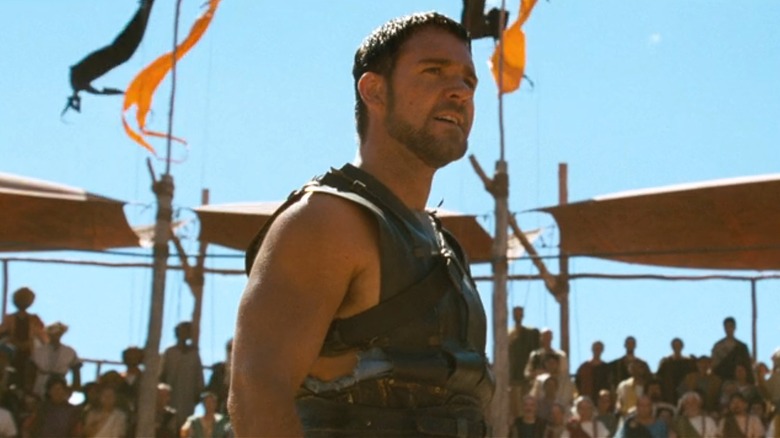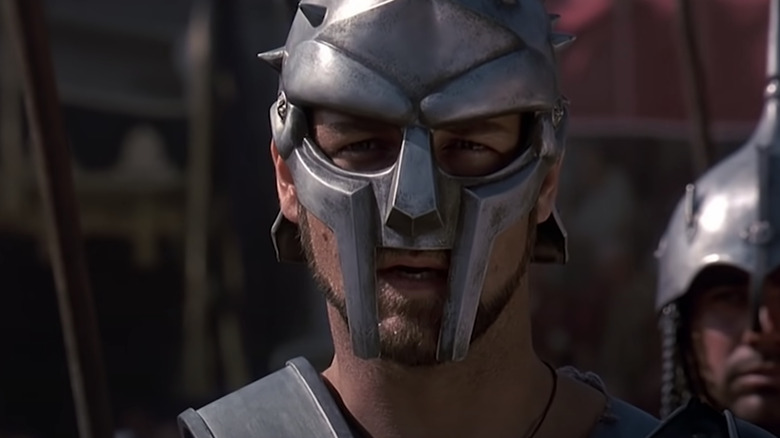Russell Crowe Considered Fleeing Gladiator Due To Its 'Rubbish' Script
A great person once attempted to figure out what Rome really meant during the zenith of its empire. While some believed it to be the political senate or nobility, others saw Rome as its people or its gladiatorial escapades. In truth, the answer ends up being somewhere in between, and the famous movie "Gladiator" highlights this nuanced question.
Following General Maximus Decimus Meridius (Russell Crowe), the movie sees the vaunted warrior brought low by treachery. He's sold into slavery, but due to his combat prowess and command skills, his status as a gladiator earns him the respect of the crowds and the ire of those in power.
With its stunning fight scenes, excellent cinematography, stirring soundtrack, and phenomenal performances, "Gladiator" is considered a modern classic, though it seems as if the first iteration of the movie wasn't invoking a lot of confidence in Crowe. Speaking with Variety, Crowe said that he was initially apprehensive about joining the cast of "Gladiator."
"I was confident about my abilities as a leading man. What I wasn't confident about with 'Gladiator' was the world that was surrounding me," Crowe said. "At the core of what we were doing was a great concept, but the script, it was rubbish, absolute rubbish, and it had all these sorts of strange sequences."
Crowe said the energy of the first script was all over the place
Russell Crowe then elaborated and said that "Gladiator" originally had tons of anachronisms, which is when objects and concepts appear in entertainment that don't belong in that specific time period. Crowe gave an example of one scene involving a chariot race where the gladiators had advertisements on the side of the war-vehicles for things like olive oil and other Roman items. This juxtaposition was suppose to highlight the real-life endorsement deals actual gladiators had at the time with a modern spin.
"That's all true, but it's just not going to ring right to a modern audience. They're going to go, 'What the f*** is all this?' The energy around what we were doing was very fractured. I did think a couple times, 'Maybe my best option is just to get on a plane and get out of here,'" Crowe said. "It was my continued conversations with Ridley that sort of gave me faith."
Luckily, director Ridley Scott told Crowe that they would only film scenes that Crowe felt comfortable with doing, which paired down the first script to a measly 21 pages, when — as Crowe noted — typical movie scripts are more than 100 pages. In other words, fans of "Gladiator" have the collaborative efforts of Crowe and Scott to thank for the movie because it sounds like the original version had very little in common with the award-winning film that was eventually brought to theaters.

